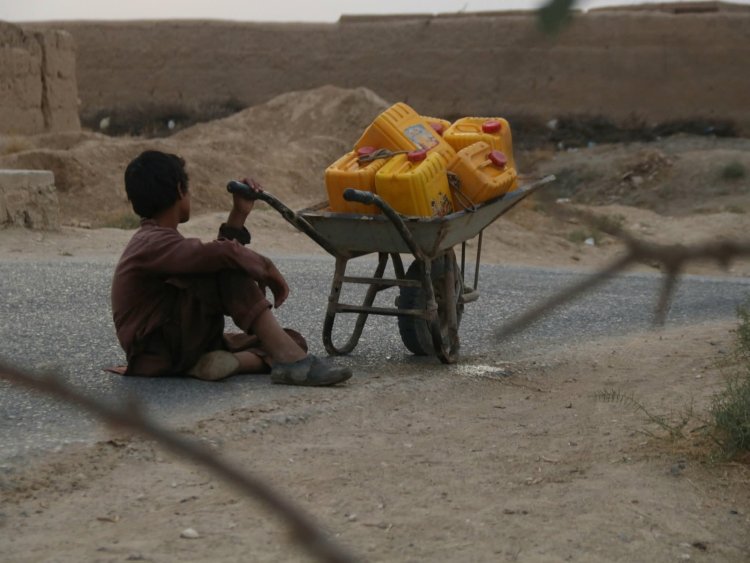Water Crisis in Afghanistan: Daily Struggle to Secure Drinking Water

Every morning, Abdullah Jan, a resident of Goshta district in Nangarhar, walks five to eight kilometers along rugged mountain paths with his livestock to fetch drinking water for his family.
He says that in the districts of Goshta, Momandara, and Shinwari, wells previously yielded water at depths of 40 to 60 meters, but now it is impossible to extract water even from 150 meters deep.
“We are forced to fetch water from nearby springs. Even the well at the Hazrat Omar Farooq Mosque dried up a year and a half ago, and sometimes congregational prayers cannot start on time because there isn’t enough water for ablution,” Abdullah Jan adds.
Subhanullah, a resident of Spin Ghar district in Nangarhar who faces a similar situation, says that previously every household had one or two deep wells, but over the past three years, access to safe drinking water has become difficult.
“Since the wells dried up, people have dug deep wells in the Spin Ghar foothills and fill them with snow in winter. The water we get is bitter and has caused many people to suffer from diarrhea and other illnesses,” he explains.
In Laghman province, groundwater levels have also declined, affecting families’ daily lives. Atiqullah, a resident of Dawlat Shah district, says that people are forced to travel long distances, up to three hours, to collect water.
He points out that fetching water is mostly the responsibility of women and children, as men are usually busy with farm work or other tasks outside the home: “Women and children go to nearby areas to collect water, and there is no adult male in a family, they have to travel even further.”
He continues: “With most wells dried up, we are forced to rely on less hygienic sources. We fetch water from springs and rivers with the help of animals, but very often this water is contaminated.”
Health experts, while emphasizing the vital importance of water, warn that excessive consumption of unsafe water can lead to a variety of diseases.
Dr. Aziz Ahmad urges people to boil unsafe water before using it. “The spring water is unsafe to drink because the sources are exposed and unprotected, posing a risk of illness,” he says.
According to the United Nations Human Settlements Programme (UN-Habitat), 21 million people in Afghanistan currently face a severe water crisis, and the country urgently needs extensive investment in water infrastructure. Stephanie Loose, head of the agency, stressed that major cities in Afghanistan are experiencing water shortages because their groundwater resources are declining, making urgent investment in this sector essential.
The water crisis has not only disrupted people’s daily lives but also threatens their health. Experts warn that without immediate action and significant investment, millions of people will continue to face water shortages and waterborne diseases.
